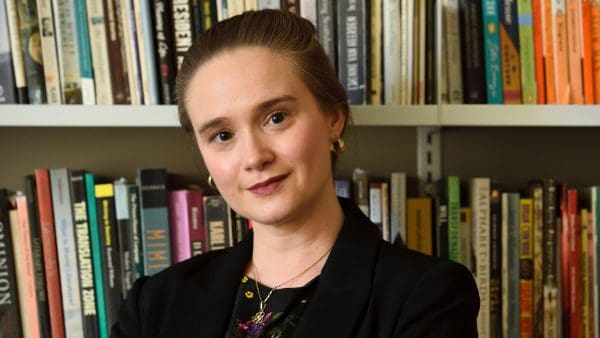Justine Roth, an associate professor in the Department of Chemistry who joined the Johns Hopkins faculty in 2003, died in July. She was 46.
Roth’s research—described as relevant to health, energy, and the environment—focused in part on metal-containing radical enzymes involved in energy production in mammals and photosynthesis in plants, both processes essential to life. She also investigated the interactions of transition metals with various compounds of oxygen, carbon, and nitrogen in biological processes. She and her research group were working on ways to combine natural or synthetic catalysts with light to speed the splitting of water into hydrogen and oxygen.
Roth was a recognized expert in her field and during her time at Johns Hopkins was regularly invited as a speaker at national and international conferences. She received several prestigious awards, including an Alfred P. Sloan Research Fellowship, the Camille Dreyfus Teacher-Scholar Award, and the Research Corporation Cottrell Scholar Award.
She earned a Bachelor of Science degree from the University of Florida, a PhD from the University of Washington, and completed an NIH postdoctoral fellowship at the University of California, Berkeley.




